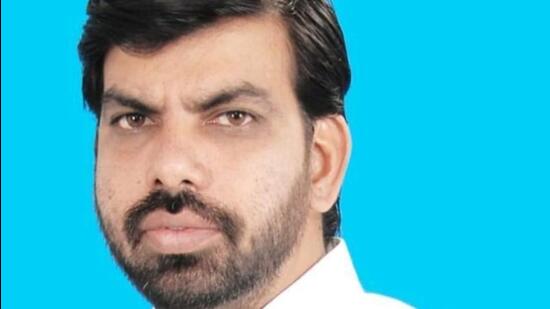Rajiv Gandhi assassination: Kin of deceased say release of convicts ‘unacceptable’
“I received my mother’s remains wrapped in a bedsheet. Only her face was visible,” says the 41-year-old, still inconsolable.
Over three decades ago, on the fateful night of 21 May 1991 when a suicide bomber carried out the assassination of the then prime minister Rajiv Gandhi while killing 16 others in Tamil Nadu, S Abbas was oblivious that the casualties involved his mother also.

“I received my mother’s remains wrapped in a bedsheet. Only her face was visible,” says the 41-year-old, still inconsolable.
Ten-year-old at the time of the blast, Abbas had lost his father to a heart attack only two years back.
Abbas who is still grappling with the loss of his mother, S Samdhani Begum, to a terrorist attack was left even more dejected after the Supreme Court on Friday ordered to set free all the six convicts facing life imprisonment in the case. The order included the release of Nalini, her husband Murugan alias V Sriharan, T Santhan, R P Ravichandran, Robert Payas and Jayakumar.
Earlier, the seventh convict AG Perarivalan was released in May.
“Their release is unacceptable but even worse is how they are being treated like heroes now. It is perverse,” says Abbas.
Abbas’s mother was part of the South Chengalpet Mahila Congress and was there to help organise Gandhi’s election rally which he was scheduled to address in Sriperumbudur.
Abbas says that retired additional deputy superintendent of police Anusya Ernest — who was one of the 40 injured during the attack — speaks to him almost every day. “She told me that when the bomb exploded, the impact threw my mother to the height of a coconut tree.” Ernest lost two fingers on her left hand in the blast. She lives with shrapnels in her eyes, chest and burn injury marks on the left side of her body.
The death sentence of the seven convicts was commuted to life sentence over different years. After they had served more than three decades in prison and filed several petitions to be released, the Supreme Court released Perarivalan in May. It paved the way for the top court to release the remaining six on November 11.
They were released on the grounds of poor health and good conduct while in prison where most of them have obtained degrees and diploma courses. On the same day, speaking to HT on the phone from Vellore, Nalini’s mother S Padma said: “Despite the conviction, a remission is not an acquittal”. Speaking to HT, from Thoothukudi, where he was out on parole Ravichandran had said that the punishment has reformed him but he is “unsure as to how the society will accept him”.
Four of the accused are Sri Lankans who have been taken to the special camp in Trichy from jail and the Union government is awaiting communication from Sri Lanka to deport them.
Nalini Sriharan, the accused number 1 in the case, has been giving media interviews appealing to the state and Union government to allow her Lankan husband Sriharan (who is in the Trichy camp) to leave with her to London to be with her daughter S Harithra. Nalini had married Sriharan before the assassination and was pregnant at the time of her arrest on June 14, 1991. She have birth to her daughter inside the prison.
“Nalini’s daughter is a doctor in London and I had to drop out after I passed Class 10 because I had to earn,” says Abbas. He recalls working from 4.30am to 7am in a milk booth to earn ₹10 before going to school. Abbas had five older siblings and they all took care of each other.
“We studied in a government school so there was no fees. But I and my brothers have starved for so many days without a meal. So, I couldn’t study further. Doesn’t that affect the next generation too? My income is very low because I am uneducated. I’m not in a position to give a better life to my two daughters.” Abbas runs a service shop for watches in Chennai’s Ambattur. He doesn’t speak English.
Tamil Nadu’s political parties except the Congress and BJP had welcomed the release of the convicts as a “victory for human rights”. The Tamil Nadu government led by the previous AIADMK regime under Edappadi Palaniswami had recommended the release of all seven convicts on September 9, 2018.
On the day the Supreme Court released Perarivalan, chief minister and DMK president M K Stalin had met him, hugged him and felicitated him with a silk shawl. Deputy secretary of the Viduthalai Chiruthaigal Katchi (VCK) (an ally of the ruling DMK-Congress combine) Vanniyarasu had also uploaded a picture of him on Twitter feeding sweets to Nalini.
“I don’t understand how they can do this (to us),” says Abbas. “If their father or mother was killed by someone, will they do this? They have never met any of us (who are the victims). We have all struggled and somehow survived. Even now it’s unbearable for me to see mothers on the streets when they take their toddlers to school.”
Earlier, Congress leader Mohan Kumaramangalam had taken to Twitter to oppose VCK’s Vaniyarasu’s action. “This is the annihilation of decency and humanity. There is no difference between this and the garlanding of Bilkis Bano’s rapists. You have become what you claim to hate,” Kumaramangalam tweeted.
Abbas and families of few other victims had even met Tamil Nadu governors Banwarilal Purohit, K Rosaiah and former PM Manmohan Singh urging them to not release the convicts. Abbas had also filed a petition in the Supreme Court when late former J Jayalalithaa had sought the release of all the seven life convicts after the civil war in Sri Lanka ended in 2009. “(At that time) I didn’t have help with funding so I withdrew my case,” said Abbas. “I still cannot accept what’s happening.”






